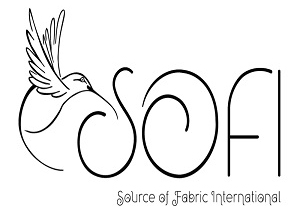Eco-friendly substitutes for conventional materials are growing in popularity as the globe continues its transition to sustainability. Vegan leather is one such substitute that has attracted a lot of interest lately. Often referred to as “faux leather” or “synthetic leather,” it is an environmentally friendly and cruelty-free alternative to leather made from animals. Due to growing concerns about environmental impact and animal welfare, this material has become a popular option for clothing, furnishings, accessories, and other items.
Vegan leather: what is it?
A material known as vegan leather mimics the appearance, texture, and durability of real leather without using animal-based ingredients. It is made from a variety of synthetic or plant-based materials, unlike traditional leather, which comes from animal hides. Examples of these materials include polyurethane (PU), polyvinyl chloride (PVC), cork, pineapple leaves, apple peels, and even mushrooms. In recent years, there has been significant progress in the development of these alternatives, offering consumers a range of options, each with its unique qualities.
The Advantages of Vegan Leather for the Environment
The environmental advantages of vegan leather are among the main factors contributing to its rising popularity. The conventional method of producing leather uses a lot of energy, water, and chemicals. Additionally, the procedure uses environmentally hazardous dyes and finishing procedures. Due to the usage of chromium and other heavy metals that might contaminate water sources, tanning leather in particular has a significant environmental cost.
Vegan leather, however, provides a more environmentally friendly substitute. Vegan leather consumes fewer resources and produces less waste when it is made from plant-based materials like apple peels (Apple Leather) or pineapple leaves (Piñatex). In contrast to conventional leather, which can take decades to decompose, these plant-based alternatives are biodegradable and provide a more environmentally responsible end-of-life option. Additionally, compared to the production of animal leather, synthetic vegan leather, which is made from materials like polyurethane, frequently has a reduced carbon footprint.
Ethical Issues and Animal Welfare
Many customers are now very concerned about the ethical implications of animal products. Traditional methods of producing leather include killing animals, which presents serious moral dilemmas for anyone who doesn’t want to support animal abuse. Since vegan leather doesn’t involve using animals, it offers a substitute that is consistent with humanitarian ideals.
Vegan leather provides a means for customers who are growing more aware of animal rights and their effects on the environment to appreciate the durability and beauty of leather goods without sacrificing their morals. This is particularly crucial for sectors like fashion, where a growing number of designers and businesses are switching to vegan leather due to consumer demand for cruelty-free products.
Vegan Leather Types
The world of vegan leather is broad, and several kinds of materials are employed to make these substitutes. Among the most well-liked choices are:
Leather made of polyurethane (PU): PU leather, a synthetic substance created from a polymer coating on a fabric foundation, is among the most popular varieties of vegan leather. It is supple and supple, and it looks and feels a lot like conventional leather.
Leather made of polyvinyl chloride (PVC): PVC, a plastic-based material frequently used in upholstery and fashion, is another artificial substitute for animal leather. Because of the chemical processes used in its manufacture, PVC is less environmentally friendly than PU, while being strong and simple to clean.
Leather Made from Plants: Numerous plant-based alternatives, such as Piñatex (made from pineapple leaves), Apple Leather (produced from apple waste), and Mushroom Leather (made from mycelium, the root structure of mushrooms), have surfaced in response to the growing need for sustainable materials. In addition to being biodegradable, these materials are less harmful to the environment than conventional leather.
Leather Cork: Lightweight, strong, and environmentally friendly, cork leather comes from the bark of cork oak trees. Its distinctive texture and sustainability have made it more and more popular. People collect cork leather without harming the tree, which adds to its appeal.
Vegan Leather’s Future
With ongoing innovation in the materials used and improvements in production techniques, this alternative to animal leather appears to have a bright future. Fashion designers, furniture makers, and even the automobile industry are likely to choose this sustainable option more and more as customer awareness of the ethical and environmental effects of conventional leather increases.
Another intriguing trend is the emergence of plant-based, biodegradable substitutes for leather alternatives. These materials address the environmental issues raised by the non-biodegradable polymers used in traditional vegan leather. As technology advances and more cutting-edge materials and production techniques emerge, experts anticipate that the market for these sustainable alternatives will continue to grow.
Why Pick Source of Fabric’s Vegan Leather?
At Source of Fabric, we’re dedicated to providing our clients with premium, eco-friendly fabrics. We offer a variety of alternatives to traditional leather to meet your needs, whether you work in upholstery, interior design, or fashion. Our selection includes both durable and stylish synthetic options as well as plant-based substitutes like Piñatex and Apple Leather.
By choosing materials from Source of Fabric, you’re not only selecting high-quality products but also supporting a more ethical and sustainable future. Our team actively brings you the latest eco-friendly textile innovations, ensuring you access the best alternatives on the market.
In conclusion
Vegan leather has become a viable, cruelty-free substitute for conventional leather, offering customers a variety of morally and environmentally responsible solutions. Vegan leather is gaining popularity in sectors including fashion, furniture, and vehicle manufacturing because of its numerous ethical and environmental advantages. Businesses and individuals alike can support a more sustainable future while savoring the robustness and visual appeal of vegan leather by selecting materials from reliable vendors like Source of Fabric, which also offers comprehensive Sourcing Services to ensure you find the best materials for your needs.


